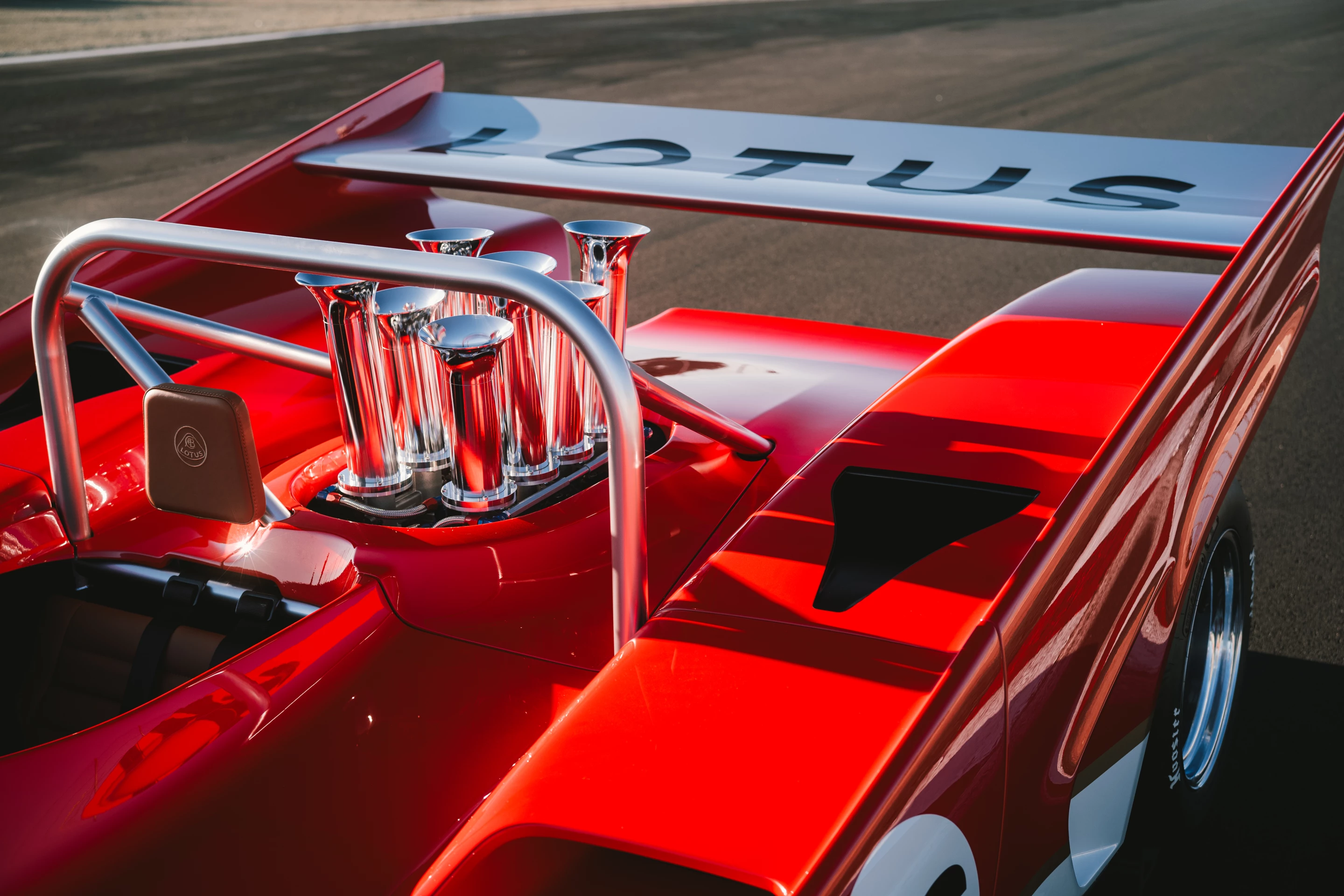Fifty-three years ago, Lotus founder Colin Chapman set out to discover how Lotus design principles could be applied to a Can-Am Series race car. The long-time-coming result is a V8 known as the Type 66 – and only 10 of them are being built.
Chapman assigned the design task to Team Lotus draughtsman Geoff Ferris, who was already focussing his efforts on Formula 1 cars. The Type 66 therefore never progressed beyond technical drawings and scale models. Now, in honor of Lotus' 75th anniversary, a limited run of actual, physical Type 66's are being made for deep-pocketed buyers – and no, they won't be street-legal.
Presented this week at the The Quail motorsport gathering in Monterey, California, the first of the cars sports the red, white and gold color scheme which adorned Lotus race cars in the early 1970s.
It's powered by a "period-representative" mid-mounted V8 push-rod engine, which produces over 830 bhp at 8,800 rpm. The car's chassis is also a nod to the past, featuring retro-70s aluminum sections, bonded joints, and aluminum honeycomb panels. That said, not everything about the Type 66 is old-school.

In order to meet modern safety standards – and to otherwise just improve the car – modern features include a carbon fiber main body; an inboard fuel cell; an EPASS motorsport power steering column; a sequential racing gearbox (with reverse); a race ABS braking system; an anti-stall multi-plate clutch; and a fixed rollover bar.
The 66 also sports a modern forged aluminum crank, rod and pistons, which generate over 746 Nm (550 lb ft) of torque at 7,400 rpm. There's also a new front wing that channels air from the front of the vehicle, through and underneath its rear wings. This setup generates more downforce than the vehicle’s total weight at full speed.

"We are incredibly proud to have completed such a unique project, and one that Colin Chapman was personally involved in," said Lotus design director, Russell Carr. "This is not a re-edition or a restomod, but a completely new breed of Lotus – a commitment that our past glories will continue to be reflected in our future."
If you'd like a Type 66 of your own, you'd better start saving now. Each car will sell for over £1 million (US$1,273,520).
Source: Lotus








